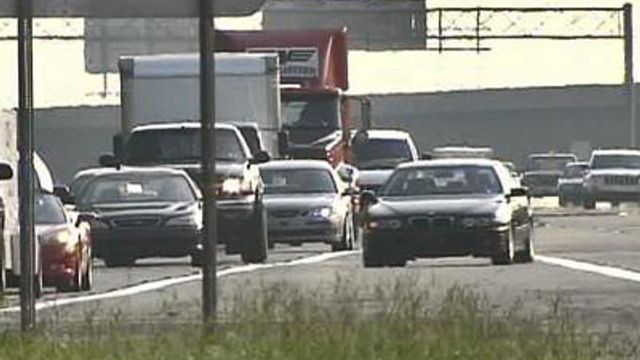Experts: N.C.'s Transportation Woes Leading to 'Storm'
All the ingredients are in place to create "a storm" out of North Carolina's transportation system, experts told a state committee on Monday.
Posted — Updated"Staying the course is at our own peril," Beau Mills, with the League of Municipalities, said. "This is a storm we have a chance to change the course of, and it takes political fortitude and foresight."
Representatives of five statewide organizations presented their concerns about transportation to a 24-member panel on Monday. Gov. Mike Easley appointed the 21st Century Transportation Committee on Oct. 29 to to examine the state’s transportation system and make recommendations to the General Assembly.
Several transportation advocates pointed to four factors stressing the transportation system and its funding:
- huge population growth
- tremendous inflation costs that add hundreds of millions of dollars to delayed construction projects
- stagnant revenue
- more people traveling more miles
"It's a daunting task, but it's an accurate description of what we're facing here in North Carolina," said Brad Wilson, chairman of the committee and chief operating officer of Blue Cross and Blue Shield of North Carolina and the past chairman of the University of North Carolina Board of Governors.
Committee members said it's clear to them that the state needs more roadways, better public transportation and increased funding .
"It's scary," Mayor Allen Joines of Winston-Salem said. "You certainly look at Charlotte, and that could be another L.A. Certainly, the Raleigh-Durham area (could be) another Washington-Baltimore corridor."
The state Department of Transportation projects a $65 billion shortfall in North Carolina's transportation budget over the next 20 years.
Joines suggested ending annual transfers of hundreds of millions of dollars from the state's Highway Trust Fund to the General Fund. The 2007-2008 budget transferred $172 million.
The practice began in 1989 after the General Assembly replaced the state sales tax on cars – which went to the General Fund – with a highway use tax, which goes directly to the Highway Trust Fund.
"That's certainly a recurring theme we'll look at very seriously," Wilson said.
Other ideas mentioned Monday included higher taxes and user fees, but committee members said they will be bold and creative in formulating solutions.
The committee will issue its first set of recommendations to the General Assembly in May 2008. That short session will be state's next chance to deal with its transportation policy.
The panel will complete a final report by the end of 2008.
• Credits
Copyright 2024 by Capitol Broadcasting Company. All rights reserved. This material may not be published, broadcast, rewritten or redistributed.






